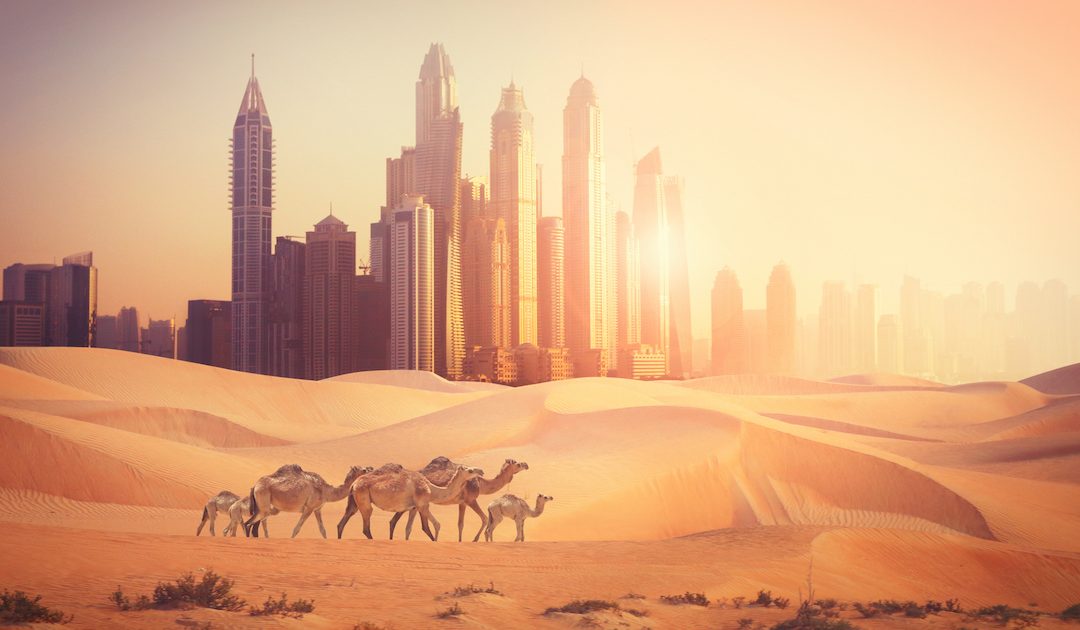
ENDING UAE’S FOOD & WATER DEFICIT
Trading is one of the most important industries in the UAE, as this is one of the richest countries. The UAE also imports many products, among which foodstuff, machinery, and equipment occupy the first positions among the most imported products in the Emirates. The availability of food is not an issue for residents of the UAE; supermarkets carry all the food they could possibly need or want. But how can a nation with the parched territory and hot weather all year round have access to a wide variety of food? Simple: The UAE is greatly reliant on imports.
-Did you know?
UAE faces a trade deficit when it comes to its food market due to limited arable land, increasing climate issues, and acute water shortage.
-What are the challenges?
With the recent COVID-19 outbreak revealing the precarious nature of imports, the UAE is now putting a strategy in place by investing in technologies to find a solution to food security.
-How can this situation improve?
They need to reduce the imports through a new food strategy which is investing in ag-tech!!
This situation can be improved through “Magic – Breathable Sand” which is one of the solutions that was developed by the Dake Group in partnership with the Rechsand Technology Group from Beijing. This type of sand is covered with a specific technology that allows air to travel through its particles and captures the water that it contains. They believe that it could be applied to desert sand to retain water and fertilizer usage by 70% and 50% respectively.
It was then tested and it worked: they were able to grow around 28 fruit trees including mango and lemon groves.
Various institutions in the United Arab Emirates provide a range of funding options to modernize agriculture.
- Dubai’s Food Tech Valley: It’s a new initiative that seeks to increase food production in the UAE and establish it as a major international destination for the sector. Based out of Dubai, ICBA works by assisting farmers and agricultural organizations in developing policies and methods that will maximize the management of local natural resources. They provide advice on the optimum crop varieties to harvest as well as soil and water quality.
- Water Scarcity: To make seawater drinkable and useful for agriculture, the United Arab Emirates mainly relies on an expensive procedure called desalination.
“Water is scarce. And as we already know, 90% of the water available in the UAE is desalinated water which is very costly and consumes energy,” explains Idland.
If half of the water was saved and used for agriculture, 30 tons of tomatoes could be produced every day. Additionally, there would be less need for the expensive and energy-intensive process of desalinating seawater.
- Vertical Farming and New Technologies: The past few years have seen a lot of attention paid to Vertical Farming. The government and the corporate sector have invested millions in the technique despite the significant expense associated with it. In order to develop vertical farming facilities in the Emirate, the Abu Dhabi Investment Office (ADIO) announced in April that it would invest $100 million in four businesses, one of which being AeroFarms.
-Visualization and Analysis.
By looking at the data from World Development Indicators, we get the results in Tableau as below: “Imports Vs. Exports”
The data line chart in the World Development Indicators shows the percentages of food exports and imports in the United Arab Emirates from 1999 to 2021 that led to a “Trade Deficit”.
-Things to note.
Why is it magical for Desert Farming and Food Security?
- Breathable roots are produced by breathing sand, and they can change the forest or other green cover.
- Given that desert soil is free of any chemical or fertilizer contamination, it encourages quicker adoption of organic farming techniques.
- A small layer of sand can save billions of gallons of water annually by reducing water use for agriculture, farming, forestry, or gardens by 80%.
- Additionally, the breathable sand can transform desert farming to increase production quantity and quality.
-Quote.
“Increasing self-production within the local region and reducing the reliance on imports is what we are focusing on,” says Chandra Dake.
“We [in the UAE] are only looking at a few hundred thousand hectares to be food secure, and it is not too far,” he says.